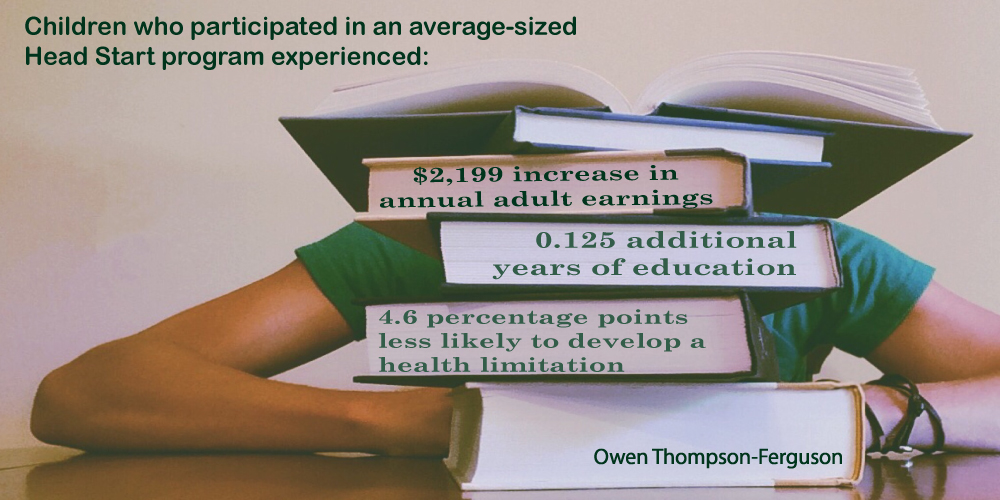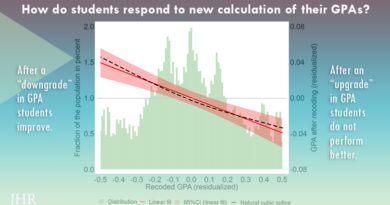Head Start’s Long-Run Impact
Because experiences in early childhood are known to influence child development, preschool programs are often viewed as policy interventions with the most potential to improve the prospects of children from low-income families. In a new study, Owen Thompson (University of Wisconsin, Milwaukee) examined the impact of Head Start on a variety of socioeconomic outcomes for participants through age 48.
Head Start is by far the largest preschool-based intervention in the United States, serving approximately 1 million low-income children nationwide. But since its launch in 1965 as a centerpiece of the War on Poverty, Head Start’s effectiveness has been debated.
While research has consistently found that test score gains from Head Start participation fade by first or second grade, the program’s effects on outcomes like final educational attainment or adult employment and earnings are not well understood.
Thompson used the initial introduction of Head Start to assess its impact on socioeconomic outcomes observed through age 48. He compared the adult outcomes of children who were too old for Head Start when the program was first introduced in their county with those of children from the same county who were young enough to be eligible.
Using this approach, he found that children who participated in an average-sized Head Start program experienced a $2,199 increase in annual adult earnings, completed 0.125 additional years of education, and were 4.6 percentage points less likely to develop a health limitation.
These findings suggest that many benefits of early childhood policy interventions may take decades to fully materialize. As Thompson says, “What’s exciting about this study is that I’m able to measure the end results of Head Start participation very directly. The fact that I see such large impacts more than four decades after participation took place suggests that we might be missing a lot of important information when we evaluate programs like Head Start based only on their short-run impacts, like test scores.”
Read the full study in the Journal of Human Resources: “Head Start’s Long-Run Impact: Evidence from the Program’s Introduction,” by Owen Thompson.



